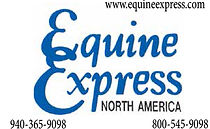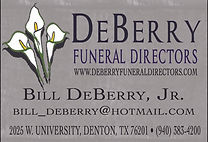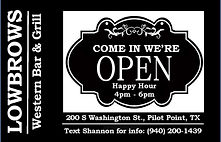A process server had a message to deliver the city manager, city attorney and city council—excluding the mayor—as the Feb. 13 Pilot Point council meeting began.
They all received a letter from attorney Tim Davis, representing “a large group of concerned citizens” threatening legal action if they did not meet a list of demands outlined in the document.
“As you will see below, my clients are motivated to ensure the rule of law prevails in Pilot Point— through all legal channels necessary,” the letter states.
It lists a collection of five accusations and how the attorney’s unidentifi ed clients would see them remedied to avoid further action.
Though the council has not made an official statement on the matter, City Manager Britt Lusk and City Attorney Brenda McDonald shared insight on each claim.

The first claim addresses the governance document, which Mayor Elisa Beasley has often expressed issue with.
“This council has continuously and wrongfully asserted that the Governance Policies and Procedures supersedes the Charter,” the letter states. “My clients herby demand that the council immediately pause and reform the Governance Document … [and] demand that the council focus on city business and refrain from creating additional governance committees.”
Both the letter and Lusk in his response state the Governance Document defers to the Charter.
“[It] is explicitly subordinate to the Charter and is used solely as a guideline to ensure orderly and efficient operations within the city council,” Lusk said. “No action has been taken that conflicts with or supersedes the Charter’s authority.”
The letter cites a section of the Charter often cited by Beasley that states “The Mayor shall attend and preside at meetings of the city council.”
That section further reads “The Mayor shall be recognized as head of the city government for all ceremonial purposes, … but shall have no regular administrative duties and no legislative veto powers.”
McDonald said to her “knowledge no one on the council has ever articulated a belief that the Charter is subservient to the governance policies.”
The letter’s second claim addresses another point Beasley has raised.
It claims the council violated the Open Meetings Act when it discussed her behavior at the Dec. 12 meeting during the Dec. 13 special meeting.
“Because the mayor’s actions did not occur for another two days [after the agenda was posted], it was impossible for the mayor’s actions to be included on this agenda,” the letter states.
McDonald said she did not “understand where that claim comes from.”
“If you look at the Open Meetings Act, the purpose of the agenda is to give the public notice of what’s to be discussed, not to list every possibility for discussion,” Mc-Donald said. “If you read the [Office of the] Attorney General opinions on agenda postings, you’ll find the city acted in accordance with those opinions and with the Open Meetings Act.”
The topic posed on the agenda reads, “Charter and Governance Provisions relating to the Mayor’s Role and Responsibilities” with no specified date range.
The third item accuses council members of holding walking quorums.
“My clients’ investigation has revealed that in the days leading up to scheduled meetings, it appears council members consistently called one another to create a series of telephone meetings to discuss city business,” the letter states. “My clients were able to prepare a spreadsheet that clearly shows this series of phone calls.”
Though the letter references a spreadsheet of calls, it was not provided with the letter.
Lusk disavowed a call log’s validity as evidence supporting the claim.
“Call logs are merely records of phone activity and do not indicate the intent of the call or the topics discussed,” Lusk said.
McDonald expanded. “The Open Meetings Act does not preclude communication among council members,” McDonald said. “The Open Meetings Act prohibits deliberation among council members for the purpose of circumventing the act of decisions being made in a public forum.”
The fourth demand addresses the letter of reprimand the council issued to the mayor following the Dec. 13 meeting that addressed administrative overreach they said she engaged in.
The letter disavows the legitimacy of the allegation and further cites the Governance Policy as evidence the council acted incorrectly within its own rules.
“While my clients maintain that the Governance Document need to be paused, reformed, and put on the ballot, this council has taken the position that it applies,” the letter states. “Yet this council failed to follow the Governance Document and allow the Mayor the opportunity to resolve the dispute.”
The section of the Governance Document the letter cites calls first for a one-onone conversation between the council members involved in the grievance.
The document later states, “it is only when the council members cannot agree on a resolution and the alleged conduct continues that the issue can be presented to the full council via executive session.”
Lusk, in keeping with what council members said during the Dec. 13 meeting, shared that the email the council cited as reason for the letter was one example out of several.
“[It] was issued based on a documented pattern of actions that were determined to be in violation of the city’s governing documents,” Lusk said.
Beasley expressed issue with the “urgency” of the Dec. 13 meeting during a later meeting on Jan. 23 where the reprimand was an item on the agenda.
City Secretary Lenette Cox said, when on a call with Beasley and McDonald attempting to find a date for the meeting, the mayor stated she could be at neither of the proposed dates and “would not attend any executive session where she was the subject.”
Cox further recalled Mc-Donald telling Beasley she had the right not to attend.
The letter’s final allegation focuses on council member Chad Major, who has not resigned despite running for the mayoral seat in the May election.
The letter cites Section 5.02 of the Charter, which states, “The office of an incumbent elected city official shall become vacant when the person holding such office files an application to have his or her name placed on an official ballot as a candidate for any elective public office other than the one such person holds.”
This is not the first time Major has retained his seat while being on an upcoming ballot for the mayoral seat.
Major explained there is a precedent for his actions in the state constitution.
The section in question, which Cox has made available to inquiring citizens, reads “All officers of this state shall continue to perform the duties of their offices until their successors shall be duly qualified.”
Major’s current seat is on the ballot for special election in May, so it is the city’s opinion that he may retain his seat until a new candidate is elected in May.
Though Beasley declined an interview with the Post-Signal on Monday morning, she later released a video on Facebook which she referred to as her statement.
“Many have asked about my involvement given I wasn’t named on the attorney’s letter and let me be very clear: Tim Davis is not my attorney,” Beasley said. “Neither my husband nor I hired him nor are we responsible for this letter.”
As of press time, the council has released no official statement on the letter. Davis’ office gave no comment to the Post-Signal and Davis disclosed the names of his clients to either the paper or McDonald.
“Until we know who he’s representing, it’s just an anonymous letter,” McDonald said.

















